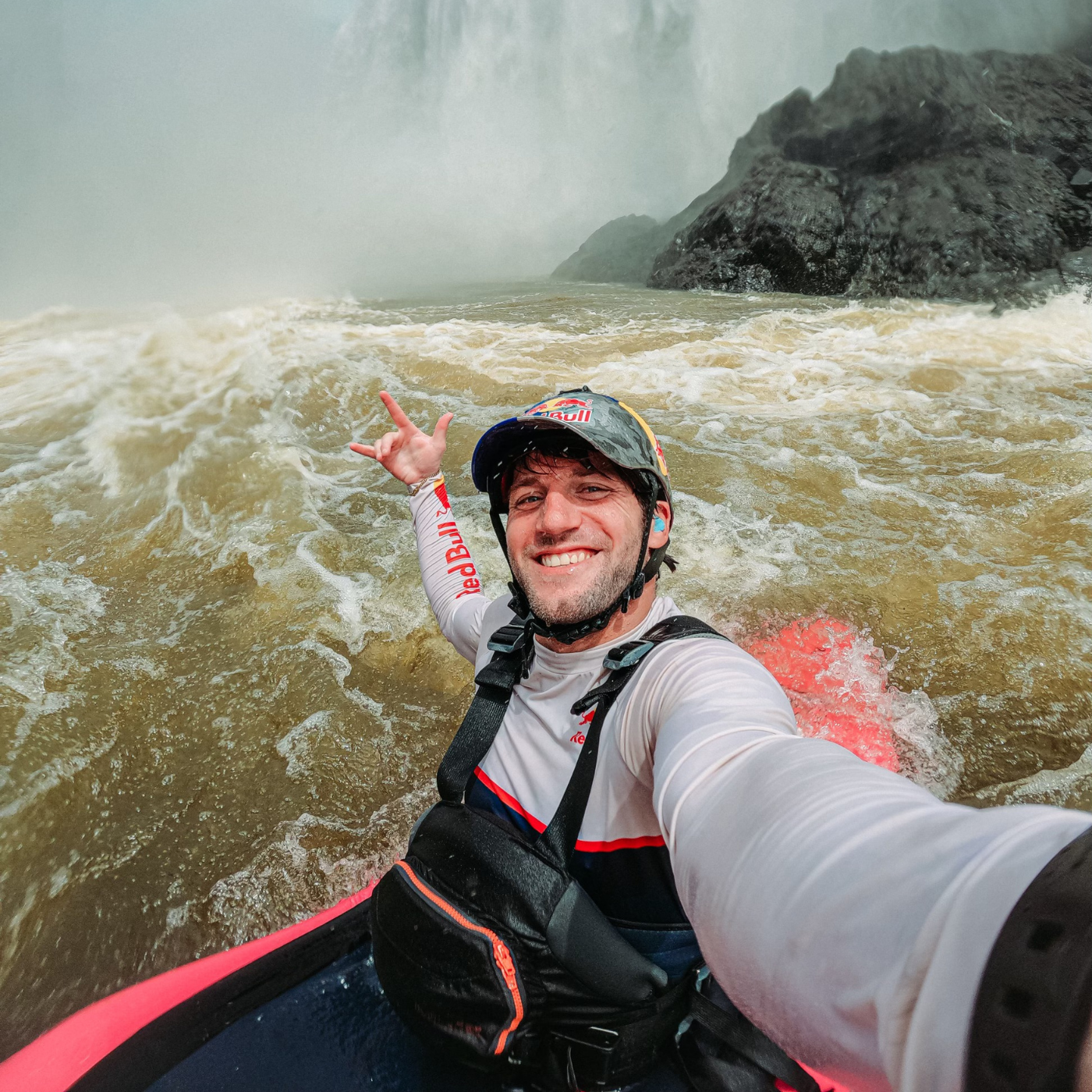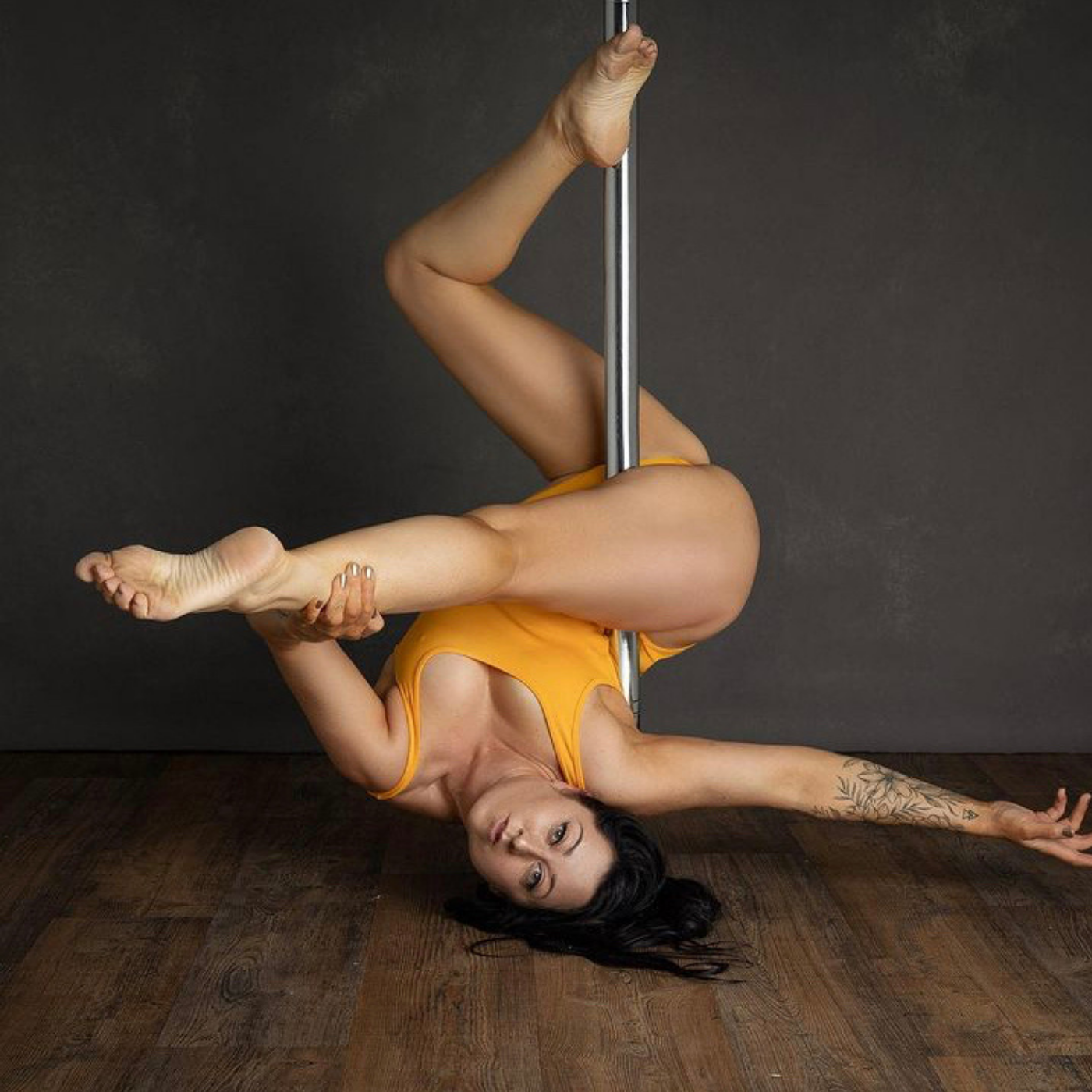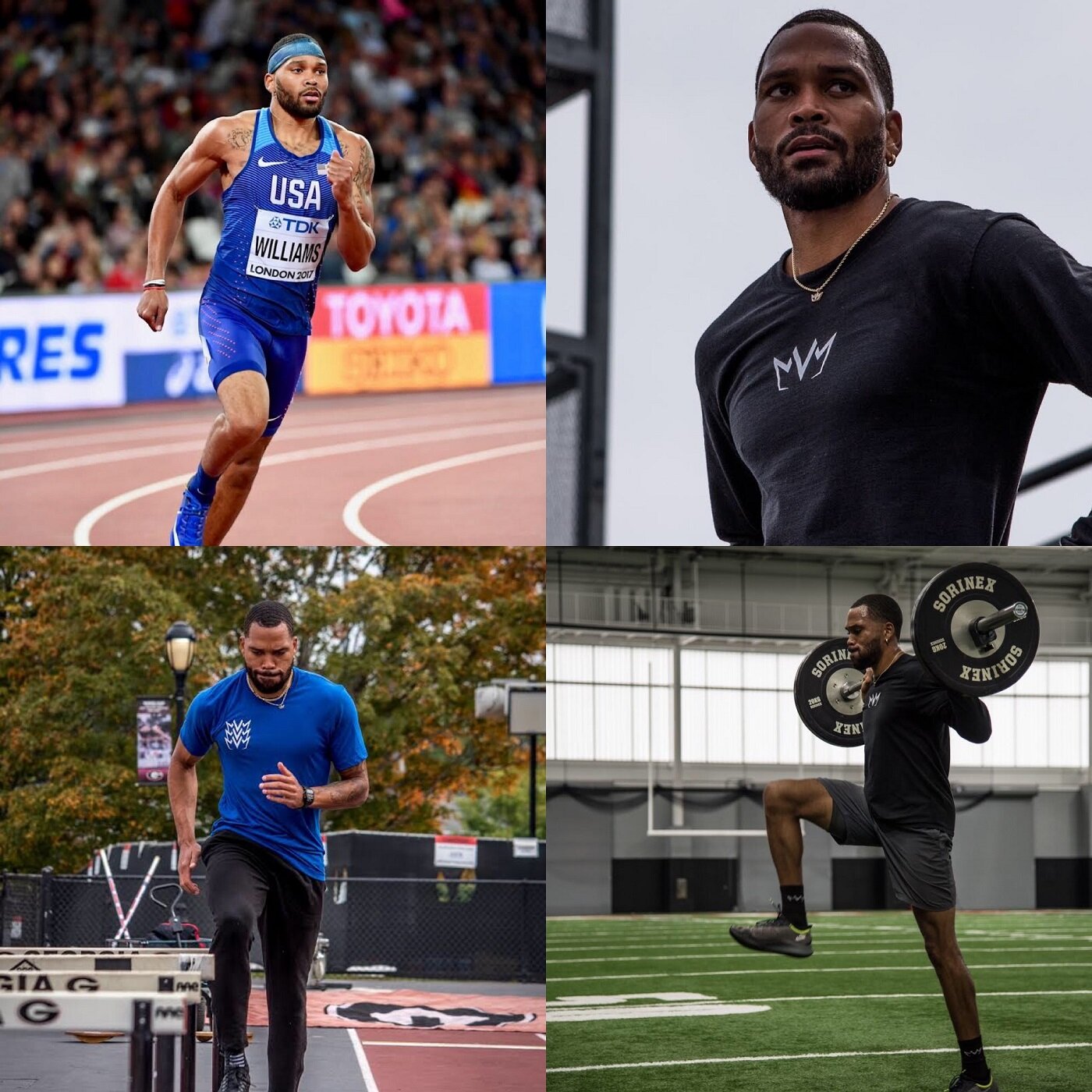John Grogan knows if you’re lying. As a professional Polygraph Examiner, he’s tested everyone from infamous criminals and celebrities, to cheating spouses and lying employees. We talk lie detector tests, how to tell if someone’s lying and the only way to beat a polygraph test. Then, we countdown the Top 5 TV Shows We’d Like to Be On.
John Grogan: 01:35ish
Pointless: 21:45ish
Top 5: 37:03ish
https://www.instagram.com/liedetectorguys (John Grogan Instagram)
http://liedetectorguy.com (John Grogan Website)
Interview with Polygraph Examiner John Grogan
Nick VinZant 0:11
Hey everybody welcome to Profoundly Pointless. My name is Nick VinZant. I'm coming up in this episode, the biggest lies and the best TV shows.
John Grogan 0:22
It's the best truth telling tool that's out there. It worked by looking at microscopic changes to blood, sweat and breathing as yes or no questions are answered in a specific pattern in almost every big criminal case you've heard of they have taken polygraphs and failed and that's why you didn't hear about them. There is no way to beat a polygraph now, short of bribing an examiner and people try that quite often.
Nick VinZant 0:49
I want to thank you so much for joining us. If you get a chance, like, download, subscribe, share, we really appreciate it really helps us out. So our first guest can tell if you're lying. He's been a polygraph examiner for nearly 20 years. And he's given lie detector tests to everybody from infamous criminals, to celebrities, to cheating spouses. And not only does he have some great stories about the lies he's been told, but also all of the things that I kind of thought about lie detector tests and how they worked. Not really true. This is polygraph examiner, john Grogan. The first question that I would have about polygraph ng is, does this really work?
John Grogan 1:39
In most states, you cannot become a police officer without passing a polygraph. You can't join any federal law enforcement agency without passing a polygraph. It's the best truth telling tool that's out there. Someone comes up with a better one, someday we'll all change to it.
Nick VinZant 1:56
How does it work?
John Grogan 1:59
It works by looking at microscopic changes to blood, sweat and breathing as yes or no questions are answered in a specific pattern.
Nick VinZant 2:08
So it's basically relying on the person to be nervous or anxious or something like that.
John Grogan 2:14
Well, all people are nervous taking a polygraph. That's why we surround the questions of importance, whether it be cheating in the relationship or theft at their work with questions we know they're telling the truth. So the computer has an example of what their body does at this moment, when they're sitting there mad, nervous and upset, but they're truly telling the truth.
Nick VinZant 2:36
Or I guess how accurate would it be? If I told 100 lies, it's going to catch all 100? Or it's going to catch like 95 of them. Like what kind of a polygraph
John Grogan 2:45
is limited to four questions maximum, we did more than that it would be unfocused. So that's part of why we can't use 100 question analogy.
Nick VinZant 2:57
How can we Why is it limited to four? Well,
John Grogan 3:00
all of our polygraph structure comes from the federal polygraph Academy that used your tax dollars for the last 50 years to study polygraph and try new things and modify things. And they found the longest test should be as a 10 question script with 20 seconds in between each question which then totals four minutes to get through one through to the end of the other. And by then that's when your arm is starting to hurt a little from the blood pressure cuff and maybe you're starting to think about the pain instead of the questions you're being asked.
Nick VinZant 3:38
Does it become inaccurate after after a certain amount of time?
John Grogan 3:42
Well, if they're no longer focusing on the questions, then yes,
Nick VinZant 3:47
if you're doing a polygraph test, when do you kind of get to the getting so to speak the like, when would you say like Okay, did you do it?
John Grogan 3:55
is today monday? No. 20 seconds later is today? Wednesday? Yes. 20 seconds later. Do you know who took the money? No. 20 seconds later is today friday? No. 20 seconds later. Did you take the money? Well, we're halfway through the 10 questions script.
Nick VinZant 4:16
Man, it's that fast, huh? No, there's
John Grogan 4:19
20 seconds in between each to let the body calm down from one before we hit you with another.
Nick VinZant 4:25
I guess my impersonate or my interpretation of it was like you're in there for hours with somebody just banging away at console when somebody
John Grogan 4:33
says the test is going to take an hour or two. It's three parts. The pretest is where we explain the equipment and help you develop your one to four questions. The next part, the test is only three four minute chart collections. It's fairly fast. And then the third part post test is discussing the results.
Nick VinZant 4:54
Now how much of this is kind of up to your interpret interpretation as the examiner or Kind of reading tea leaves so to speak? Or is this black and white? Yes or no.
John Grogan 5:04
Now most computer polygraphs come with computer scoring that takes that power away from you of being too easy or too hard on somebody.
Nick VinZant 5:13
So the computer scoring like how does that work?
John Grogan 5:17
It's comparing your blood sweat and breathing on something we know you're telling the truth, to what your blood, sweat and breathing get on the important question. And also on a third question, third type of question.
Nick VinZant 5:30
What's the what's the third type of question?
John Grogan 5:33
It's in what's called a C question. And it's really too involved for this effect to take a week of a polygraph school to study that third question.
Nick VinZant 5:44
Now that here's the problem. Now I'm so interested in what the third question like can you give me an example of what the third question would be?
John Grogan 5:51
Well, if I'm here, because you're accused of stealing money at your employer, and the employer wanted to write for questions they might be Do you know who took the money? Did you take the money? Do you know where the missing money is? Now? Did you help anybody take the money? That see question might also be a theft question, but from a different time in your life. It might be prior to working here. Did you ever steal any money from someone who trusted you in the federal polygraph Academy? In all the money and time they spent is found that that's a good question to ask as a third type of question during a test.
Nick VinZant 6:31
Now, Will these results do they generally hold up in court?
John Grogan 6:35
Well, I do them for immigration court, which is federal. That's where most court ones are used in federal court because the US government is the biggest users of polygraph in the world. A lot of people don't know a lot of people are getting their immigration thanks to passing a polygraph test.
Nick VinZant 6:53
I didn't know that at all. Wow. Is there any examples of a major crime, felony murder, etc, in which somebody has been convicted solely off a polygraph test?
John Grogan 7:08
Well, New Mexico for example, they allow polygraph is evidence the same as any other evidence with no special procedure. Other states, you either need both sides to agree to before the test, or have the judge override it.
Nick VinZant 7:25
When when you kind of score somebody based on whether or not they're telling the truth. Is it it's a probability like there's a 90% chance that they're lying, or 10% chance that they're lying? Or how does that work?
John Grogan 7:37
There's two levels of accuracy with a polygraph. The first is the blood sweat and breathing is for devices attached to you. That's pretty much 100%. Because it's just medical equipment, truly reading your blood sweat and breathing changes. Then the other level of accuracy is when we take the results and make a call pass or fail. And that's held to be over 90% accurate. They get the 90% to 95% is true later, other evidence appearing or confessions. They match it to what the polygraph said and 9.5 out of 10 times the polygraph had the correct answer.
Nick VinZant 8:19
Is this would you say like looking at it in terms of court cases, is this growing in its acceptance about level or declining and its acceptance in use.
John Grogan 8:31
Usually in communities where you can't become a police officer without passing one. Those are the areas where most judges allow them in court. If it's important enough of a tool to let somebody become a cop. Based on that, then it certainly should be usable for evidence and polygraph even if it was only 90% accurate. They allow other evidence in like eyewitness testimony you say it was a purple car, I say it was a brown car. Yet that's allowed in his evidence. And that's eyewitness testimony is wrong 50% of the time,
Nick VinZant 9:04
I feel like I'm going to do a really bad job framing this question. So I'm going to hope that you kind of understand what I mean by this. But can it pick up on say, lies of omission in the sense that like, Did you eat the sandwich? And no, I didn't eat the whole sandwich but I ate 70% of it. Can it kind of stuff up?
John Grogan 9:27
That's why we have to be very accurate on the questions they need to be yes or no answerable. Three to 19 words seems to be the best. And no ands ORS or commas. So for example, I might ask you Did you kill that man and you're thinking I didn't kill him the bullet I shot out and killed him. So that's why we asked did you shoot the man? Or did you shoot the gun that shot the man, you've done this before.
Nick VinZant 9:53
That makes a lot of sense now but let's say that you had somebody that wasn't as experienced in yourself. And they didn't frame that question correctly, like the way that you framed it, would it still pick up that somebody was kind of committing a lie of omission that like, Hmm, I didn't kill the guy, I just pulled the trigger and the bullet did it. If somebody who wasn't as experienced as yourself asked a question in that way, would the system still be able to tell that they were like?
John Grogan 10:24
Well, the reason it's called a lie detector, not a truth detector. An example is, there's a homeless guy that lives downstairs from my office, and he tells people, I am Jesus Christ. If we were to do a test on him, he wouldn't fail. He is not lying. Now, we're not saying he's Jesus Christ, we're saying he's not lying. He truly believes it to be true.
Nick VinZant 10:48
So could somebody who let's use a dramatic example, kill someone, if they just absolutely believe that they didn't do it? Even if there was like video evidence that clearly shows them? They did it? If they didn't believe it? Can they pass the test?
John Grogan 11:04
Yes, it's not something they can train themselves to do if they were so drunk or blacked out and really don't remember it. They will pass but if they probably playing games, no, it will catch them their sweat at their fingers will go up dramatically. And we'll we'll call it a lot.
Nick VinZant 11:21
It couldn't just be one of these things that I sat in a room before I took this and just convinced myself over and over and over again, even though I like if if there was any internal thought in my mind that I had done it, I would probably get caught by the by the system.
John Grogan 11:37
If you know you're lying, you'll fail. In fact, one of the questions on the final exam, but most polygraph academies are kind of sociopath or a psychopath be tested? And the correct answer is, if they know they're lying, they will fail.
Nick VinZant 11:54
Are you ready for some harder slash listeners submitted questions? Sure. So the big one, obviously, is going to be Can people fake it?
John Grogan 12:02
No. Back in the old days until the 1990s. computerized polygraphs didn't exist. It was a roll of chart paper with four moving pens. And it was a struggle and a lot It took hours back then because we had to write furiously as a chart paper was moving. And when it was done, we had to use rulers to make measurements. And with computerized No more ink or paper problems. It's amplified and achievements got scoring software that sees things better than our own eyes did. So there is no way to beat a polygraph. Now short of bribing an examiner and people try that quite often.
Nick VinZant 12:41
What's the most amount somebody has ever bribed you with?
John Grogan 12:44
People have offered 100 to $1,000
Nick VinZant 12:49
did that seem like a reasonable amount for that case? Or did you feel like they should have bribed you with a lot more?
John Grogan 12:55
Well we would never take a bribe so it doesn't matter the amount but let's say a guy his wife found out he was cheating and she would not give them another chance so he's got no benefit of answering the truth tour. They come in and say Mr. I'll give you $500 just guarantee me to pass when we say now we can't even test for you now that you've said that.
Nick VinZant 13:17
So that so the I guess the lesson I would take is bribe the bribe the examiner and then you don't have to take the test kind of right.
John Grogan 13:26
I would bet 99% of examiners wouldn't take the bribe
Nick VinZant 13:30
most interesting legal case you've been involved
John Grogan 13:33
in examiner's do a lot of the tests you see of high profile people accused of killing their wives and whether or not the polygraph would have been admitted in court isn't important to them it when they release it to the public for public relations reasons and almost every big criminal case you've heard of they have taken polygraphs and failed and that's why you didn't hear about them
Nick VinZant 14:01
really so basically if like it's a big case and you don't hear about the polygraph they've probably
John Grogan 14:08
they've probably probably took one and failed.
Nick VinZant 14:11
You do a lot of these things obviously for court like you mentioned immigration court and stuff like that. But now what kind of stuff do you do on the on the civil side?
John Grogan 14:20
On the civil side, not criminal but civil?
Nick VinZant 14:23
Or sorry, I I should have phrased that differently. Um, like personal stuff. Hey, is my spouse cheating on me? Nothing to do with nothing.
John Grogan 14:32
Almost 90% of our work is husband wife, boyfriend girlfriend, gay couples thinking the others cheating? How much does it cost? Anywhere from 145 to 1000. It's the same test whether you pay $1 or 1000. The computer polygraph doesn't know what you charge what you paid. So it's just whatever the examiner charges based on Are there other examiner's in his or her area and then some culture are known for asking certain questions. Also, there are certain cultures that want to know, was I really the first guy you had sex with? is mine. Really the biggest one you've ever seen certain cultures out
Nick VinZant 15:16
there, this is kind of a broad question. But in your, in your experience are most people generally lying or most people generally telling the truth?
John Grogan 15:22
About 5050. I do a lot of failed urine tests from military bases, where guys and gals want to say, I did not knowingly ingest whatever chemical, your analysis says I used. And they're ordered, go get a private polygraph. Because if you don't pass one, you will be out of the service very shortly.
Nick VinZant 15:44
And that's about 5050. Like sometimes they really did these
John Grogan 15:49
things, we fail them and they'll sometimes they'll say, Well, I don't like your test. Okay? I'm not saying you're a liar, but I'm saying you failed a polygraph test, which usually means the same thing.
Nick VinZant 16:00
So obviously, you always go by the test. But can you After all, the your experience? Can you pretty much tell at this point, whether somebody's lying or not, before you even look at the test?
John Grogan 16:12
I can tell only while I'm testing them as I watched them live on the computer screen, but looking at them personally. No, I can't tell
Nick VinZant 16:20
you. Is there somebody that stands out in your mind? And obviously you don't have to name names or anything like that. But is there anybody that stands out in your mind that it was like man, that person was a good liar?
John Grogan 16:30
No, people that are good liars, they lot of people that are guilty are willing to take polygraphs because they think they're such a good liar, they can beat a polygraph. And then we show them on the screen. After they fail a couple of times, we say we're going to turn on a screen so you can watch yourself live. And they see what their body does on the first couple of questions. And they can see when we get to the important question, what a major difference it is yet they thought they were in control of their body.
Nick VinZant 16:59
You know, some of the things that I've always heard of like you can tell somebody's lying if they look around, or if they blink a lot or anything like that. Is there any truth to that kind of stuff?
John Grogan 17:07
while they're studies that say when went out? Ask you have you ever stolen anything since you've been an adult? If you're while you're thinking of your eyes go to one side it means you're truly trying to remember and the other side it looks is means you're trying to make up an answer.
Nick VinZant 17:24
What's the biggest lie somebody has ever told you? It could
John Grogan 17:27
be but a lot we work for a lot of marijuana dispensary. So those are all cash businesses. They can't get a bank account. Sometimes they take in 100 or 200,000 a day. An employee can take 50,000 and not even be known for a couple of days. So Bell saying no, I didn't take it and we see they're wrong. And when we tell them they're wrong, that's when they say we'll give you a big chunk of money if you say that I passed
Nick VinZant 17:54
best scene in a movie depicting someone taking a polygraph test.
John Grogan 17:59
Well people talk about that. Folks movie I can't remember the name a guy using an antique polygraph. And that's back when people used to put a tack in their shoe to try to interfere with polygraph results.
Nick VinZant 18:14
Oh, that's one of the oceans movies isn't it? It's like a gambling but
John Grogan 18:18
but there was one of those it's Meet the Fockers.
Nick VinZant 18:21
Oh right. Right. Right. Right. was that? Was that in any way so somewhat accurate?
John Grogan 18:29
Um, it's how we did it in the 80s before computerized came out?
Nick VinZant 18:34
What's the worst polygraph scene in a TV show or movie where you went off? That's not anywhere near accurate?
John Grogan 18:41
Well, we see them wiring to the fingers and putting them backwards where the moisture devices are touching their fingernails instead of their fingerprint areas, things like that.
Nick VinZant 18:53
What advice would you give to me or to anybody listening if they were about to take a polygraph test?
John Grogan 18:59
to do your best you need to answer yes or no with your mouth only no head movements or body movements. If you shake your head yes or no, it'll make your body change the same as if you had lied. So we just want the truth we don't want you to fail due to moving so answer with your mouth only.
Nick VinZant 19:18
Um, that's pretty much all the questions that I have. Is there anything that you think that I missed or anything like that?
John Grogan 19:25
Sometimes people ask us what if he uses drugs? Is that going to change the results? polygraph just to comparison test. So if they take a drug and it slows their breathing or blood, it's also going to slow it on the other questions, not just the client questions, and we're still looking to see if the client questions have a bigger reaction than the known truthful, or the third type of questions. There's no drug that can help someone pass as long as they can still walk and talk. The drug won't change anything.
Nick VinZant 19:58
How did you get into this
John Grogan 20:01
I was a regular private investigator and started getting more and more calls for it. In most counties, in most states, there's less than one polygraph examiner per County. For example, California has 58 counties, there's 10,000 private investigators, but there's only 50 private polygraph examiner's. Why is that? Why? It just doesn't attract people. They make movies and TV shows about private investigators, because that's exciting. They don't make them about lie detector people.
Nick VinZant 20:35
But you would think that at some point, that there would just be enough of a demand that people could like, man, there's this is an open area, I could jump into this. How come?
John Grogan 20:46
It is a profession that those in it, try to keep others out. They tell them Oh, it's too hard to learn. Oh, it's boring. The equipment's too expensive, because they want to keep the work for themselves.
Nick VinZant 20:58
How expensive is this stuff? How expensive is equipment,
John Grogan 21:02
there's four brands of computer polygraph. It's kind of like comparing Honda Toyota Nissan, and maybe Kia. one's a little less known, but probably still just as good. What you get fit in a shoe box and a cost you four to $6,000.
Nick VinZant 21:17
That's not a huge startup cost. Not not in the grand scheme of but the schools
John Grogan 21:21
are 10 weeks long, and a lot of people don't have that time to put into a school. There's only town in the whole United States.




















